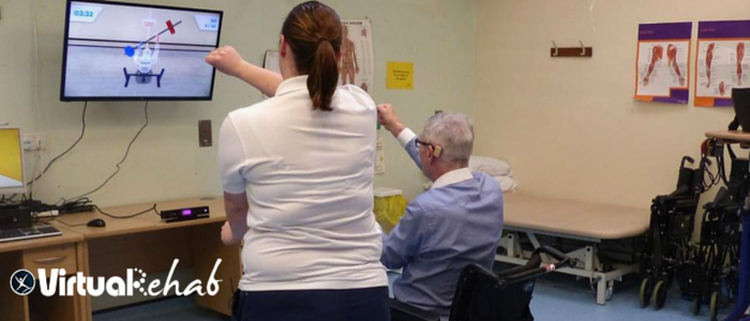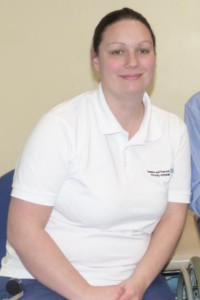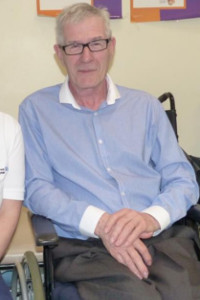
A new treatment has been launched at Basildon University Hospital that adds fun, variety and motivation to vital exercise programmes for patients with conditions including multiple sclerosis, Parkinson’s, Guille Barre syndrome, spinal cord injuries, head injuries and stroke.
Basildon is one of only three hospitals in the country to offer VirtualRehab therapy, and the first in east of England.
The therapy uses computer software that operates with Microsoft Xbox hardware. This would more normally be associated with teenagers killing zombies, but the speciallydesigned Virtual Rehab software tracks 25 different joints in the body.
Exercise programmes are individually tailored for patients with a range of mobility problems, using a choice of eye-catching games and graphics, such as rowing boats down river canyons, making frogs jump on lily pads and bursting party balloons. The new therapy is available following work by neuro physiotherapy team lead Jayne Coulson, after she attended a rehab study day University College London Hospital London.
Jayne said: “There were lots of reps in the foyer with all sorts of equipment, but VirtualRehab stood out because it does something for every part of the body – core, legs, arms, hands and fingers, and it operates with existing hardware. “You don’t need to be able to leap around to use it; you may be in a wheelchair. There is no console to hold, because many patients can’t manage that. Instead a motion sensor recognises movements, whether it’s the entire body, different limbs, or just fingers.
Jayne carried out detailed research into the treatment, gathering evidence and feedback from therapists about the benefits for patients, then successfully made the case for Basildon Hospital to provide the treatment.

The number of patients at Basildon University Hospital who may benefit from this new therapy is unlimited due to the licence the Trust purchased. So far 10-12 people are using it, with very positive results, including Reg Staples, who is in a wheelchair after he had a heart attack and a blood clot lodged in his spine.

The software and equipment has been paid for by the Trust’s charitable fund. It is not yet licensed for patients to use at home, but that is likely to happen in the near future
VirtualRehab was designed in collaboration with neurologists and physiotherapists for professional therapists who work with people who suffer from neurological conditions. It aims to supplement traditional therapy to encourage the necessary repetition of movements that lead to significant and lasting improvements in the patients’ conditions. It also helps motivate patients and keeps them engaged over longer periods of time, which can improve their quality of life.
VirtualRehab is currently being offered in rehabilitation centres throughout Europe, Asia, the Middle East and Latin America.